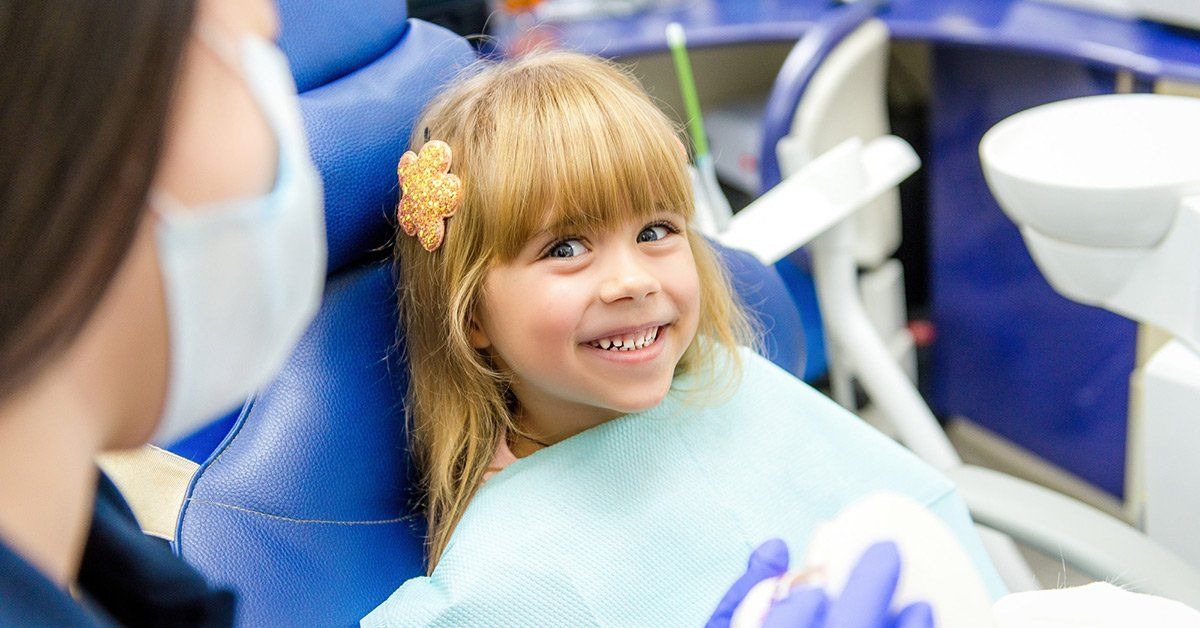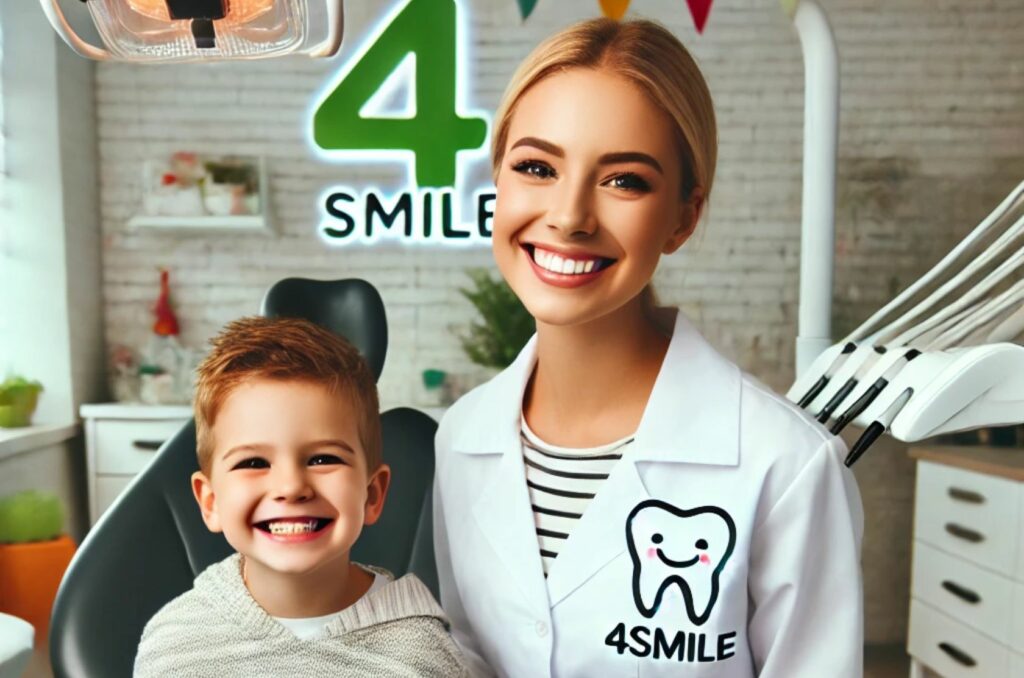Pediatric dentistry is crucial in ensuring the healthy development of your child’s teeth and gums. From the first tooth that emerges to the development of permanent teeth, pediatric dentists play a significant role in maintaining oral health, preventing dental issues, and educating parents on best practices for children’s oral care. If you’re new to pediatric dentistry, joining a platform like 4smile can be a great step towards building a solid foundation for your child’s dental health. Whether you are seeking information or looking to schedule an appointment, pediatric dentists help ensure that your child’s oral development remains on track.
Good oral health practices established early on can lead to lifelong benefits, preventing complications such as cavities, gum disease, and even orthodontic issues. Understanding when and how to start your child’s dental journey is key to a healthy smile. We aims to provide you with the most up-to-date information about pediatric dentistry, answering common questions such as when children should begin seeing a pediatric dentist and what to expect during those early visits.

What is Pediatric Dentistry?
Pediatric dentistry is a specialized branch of dentistry that focuses on the oral health of children from infancy through adolescence. This field encompasses a variety of dental care practices, including preventive measures, diagnosing, treating oral diseases, and providing education for both children and their parents. Pediatric dentists undergo specialized training to handle the unique challenges that come with treating young patients.
Beyond just the physical treatment of dental issues, pediatric dentistry involves educating parents on the importance of early dental care. Pediatric dentists are skilled in offering child-friendly environments that help ease anxiety and build trust. They teach children the importance of good oral hygiene practices and how these habits contribute to overall health.
When Should Children Start Seeing a Pediatric Dentist?
A common question that parents ask is, “When should my child first visit a pediatric dentist?” According to dental experts, a child’s first dental visit should take place by their first birthday or within six months after the first tooth erupts. This may seem early, but it is an important milestone in a child’s development. Early visits help ensure that any potential dental issues, such as teething problems, early decay, or abnormal oral habits, are detected and addressed early on.
Pediatric dentistry recommend that parents start taking their children to the dentist early, even before they have a full set of teeth. Early visits offer many benefits, including providing guidance on teething, the proper use of pacifiers, thumb-sucking, and establishing a solid foundation for lifelong oral hygiene habits. Starting early sets the tone for positive dental experiences, helping to alleviate anxiety as children grow older and become accustomed to regular checkups.

The Role of a Pediatric Dentist in Child Development
Pediatric dentists are not only responsible for treating existing dental issues but also play a pivotal role in promoting overall child health. By monitoring oral development, they can detect and address concerns related to tooth eruption, alignment, and jaw development at an early stage. This proactive approach is essential for preventing dental issues from becoming major problems down the line.
Regular dental visits also ensure that children develop proper habits for brushing, flossing, and overall oral hygiene. Pediatric dentists teach children how to care for their teeth and gums, while educating parents on how to reinforce these habits at home. The role of pediatric dentistry extends far beyond simply treating cavities—it is about empowering both parents and children with the tools and knowledge they need to maintain oral health for life.
The Importance of Early Dental Visits
The earlier children start seeing a dentist, the better the outcomes for their dental health. Early visits provide pediatric dentists with an opportunity to assess the child’s risk for developing cavities, gum disease, or other oral health problems. By establishing a dental home early, children become familiar with the dentist’s office, making them more comfortable with future visits.
Additionally, early visits help pediatric dentists detect any potential developmental issues with a child’s teeth, gums, or jaws. Catching these problems early can lead to more effective interventions and treatments, preventing more serious complications as the child grows. The American Academy of Pediatric Dentistry strongly recommends that children see a dentist regularly, starting at age one or soon after the eruption of the first tooth.

Key Services Provided by Pediatric Dentists
Pediatric dentists offer a wide range of services designed to address the unique dental needs of children. Some of the primary services include:
- Preventive Care: Cleanings, fluoride treatments, and sealants to help prevent cavities and other dental problems.
- Restorative Care: Treatments for cavities, damaged teeth, or infections.
- Orthodontic Evaluations: Early assessments to detect alignment issues and determine if orthodontic intervention is needed.
- Behavioral Management: Techniques for managing dental anxiety, ensuring that children feel comfortable during their visits.
- Education and Guidance: Teaching children about proper oral hygiene and educating parents on diet, oral habits, and other aspects of oral health.
These services ensure that children receive comprehensive care that supports their developing smiles. Pediatric dentists use their expertise to address both current and future oral health needs, offering solutions that suit the child’s stage of development.
How to Prepare Your Child for Their First Dental Visit
The first dental visit is an important milestone in your child’s life. It is essential to prepare both your child and yourself for the visit. A few simple steps can ensure that the experience is positive:
- Talk Positively: Discuss the visit in a positive, calm manner. Use encouraging words and avoid expressing any anxiety you may have about the dentist.
- Play Dentist at Home: Role-playing can help your child feel more comfortable with the idea of visiting the dentist. Pretend to clean their teeth or let them “clean” your teeth with a toy toothbrush.
- Bring Comfort Items: If your child has a favorite stuffed animal or blanket, bringing it along can provide comfort during the visit.
- Ask the Dentist for Advice: Let the pediatric dentist know if your child has any particular fears or anxieties. Pediatric dentists are well-trained in handling nervous children and can adjust their approach to make the experience more comfortable.
Preparing your child in advance can help alleviate fears and create a positive experience that sets the tone for future dental visits.

Understanding Common Dental Issues in Children
Children face a variety of dental issues as their teeth develop. Some common concerns include:
- Teething: Teething can cause discomfort as new teeth begin to erupt. Pediatric dentists can provide guidance on how to soothe teething pain and promote healthy tooth eruption.
- Cavities: Cavities are a common problem in children, often caused by sugary diets and improper oral hygiene. Pediatric dentists offer preventive treatments and educate parents on the importance of regular brushing.
- Thumb-Sucking and Pacifiers: These habits can impact the development of the teeth and jaw if not addressed early. Pediatric dentists can provide strategies to help children break these habits.
Understanding these common issues and working with a pediatric dentist can help ensure that your child’s teeth and gums develop properly, preventing problems in the future.
Maintaining Oral Hygiene for Children
Good oral hygiene is essential for preventing dental problems and promoting healthy teeth. From an early age, it’s important to teach your child proper brushing and flossing techniques. Even before your child has teeth, gently wipe their gums with a soft cloth after feedings to remove bacteria. Once the first tooth emerges, begin brushing with a small, soft toothbrush and a tiny amount of fluoride toothpaste.
As your child grows, encourage them to brush their teeth at least twice a day and floss once daily. Make brushing fun by letting them pick their toothbrush and toothpaste, or by using songs or games to make the experience enjoyable. Regular visits to the pediatric dentistry will also reinforce the importance of good oral hygiene and provide additional tips for caring for your child’s teeth.

When Should You Be Concerned About Your Child’s Teeth?
While it’s important to be proactive about your child’s dental health, there are specific signs that may indicate a problem. Parents should be concerned if:
- Discoloration: Persistent staining or discoloration of teeth may indicate cavities or other oral health issues.
- Pain: If your child complains of tooth or gum pain, it could be a sign of an infection, cavity, or injury that needs professional attention.
- Thumb-Sucking: Prolonged thumb-sucking or pacifier use can lead to misalignment of the teeth and may need to be addressed by a pediatric dentist.
- Misalignment: If your child’s teeth are not growing in straight or if there is noticeable crowding, consult with a pediatric dentist to determine the best course of action.
It’s always better to err on the side of caution and schedule a visit to the pediatric dentist if you notice any of these signs. Early intervention can prevent more significant issues from developing in the future.
The Role of Pediatric Dentistry in Preventing Cavities
Preventing cavities is one of the primary goals of pediatric dentistry. Pediatric dentists focus on educating both children and parents about the importance of good oral hygiene and proper nutrition. Regular dental cleanings and fluoride treatments help keep your child’s teeth strong and free of decay.
Additionally, pediatric dentists may apply dental sealants to protect the grooves of the molars, where cavities are most likely to develop. These preventive treatments, combined with regular brushing and flossing, help to significantly reduce the risk of cavities and maintain overall oral health.

Choosing the Right Pediatric Dentist
Choosing the right pediatric dentist is an important decision that will impact your child’s dental health for years to come. Consider the following factors when choosing a pediatric dentist:
- Experience and Qualifications: Ensure that the dentist has the appropriate qualifications and specializes in pediatric dentistry.
- Child-Friendly Environment: The dental office should be welcoming, comfortable, and designed to put children at ease.
- Approach to Treatment: Choose a pediatric dentist who has experience working with young children and understands how to manage anxiety.
A pediatric dentist who is compassionate, patient, and well-versed in child development can help ensure that your child has a positive experience with dental care.
What to Expect During a Pediatric Dental Visit
Pediatric dental visits are designed to be as comfortable as possible for both the child and the parents. The first visit typically involves a gentle examination of the teeth and gums, as well as a discussion about proper oral hygiene. For younger children, the visit may be brief, with the dentist offering guidance on teething, feeding habits, and other developmental milestones.
As the child grows, dental visits will include more comprehensive exams and professional cleanings. Pediatric dentists use age-appropriate tools and techniques to make each visit easy and stress-free.
Common Pediatric Dental Treatments
Pediatric dentists offer a variety of treatments to address common dental issues in children, including:
- Fillings: For cavities, pediatric dentists may use fillings to restore the tooth.
- Sealants: Dental sealants are applied to the back teeth to protect against decay.
- Space Maintainers: These are used to hold space for permanent teeth when a baby tooth is lost prematurely.
These treatments are designed to be as minimally invasive as possible while ensuring that your child’s oral health is protected.

FAQs
At what age should my child first visit a pediatric dentist?
It’s recommended that your child see a pediatric dentist by their first birthday or within six months of the eruption of their first tooth.
What should I expect during my child’s first dental visit?
The first visit typically involves a gentle exam, guidance on teething, oral hygiene, and early preventive care, helping your child get comfortable with dental visits.
How can I prepare my child for their first dental visit?
Talk positively about the visit, role-play brushing, bring comfort items like a favorite toy, and avoid expressing any dental anxiety yourself.
Why are regular dental visits important for children?
Regular visits help detect early dental issues, such as cavities or alignment problems, and promote good oral hygiene habits that can last a lifetime.
What common dental issues do children face?
Common issues include cavities, teething discomfort, thumb-sucking, and misaligned teeth. Pediatric dentists provide care to prevent or address these issues early on.
Conclusion
Pediatric dentistry is an essential component of your child’s overall health and well-being. By starting dental visits early and choosing a qualified pediatric dentist, you can help your child develop healthy oral habits that will last a lifetime. If you are looking to take the first step in your child’s dental journey, consider joining 4smile to get connected with trusted professionals who can guide you every step of the way. Regular visits to a pediatric dentist, combined with good home care, will ensure that your child maintains a bright and healthy smile throughout their childhood and beyond.




